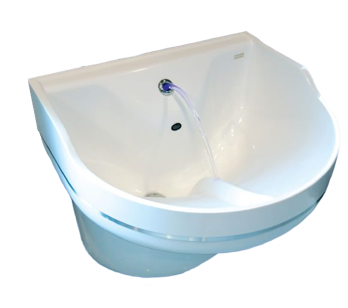
We collect basic website visitor information on this website and store it in cookies. We also utilize Google Analytics to track page view information to assist us in improving our website.
CHAIR believes continuous point of use disinfection of dispensed water and drains is key to cost effective transformation of community and healthcare spaces including hospitals and long term care.
CHAIR recommends a Target Contamination Level (TCL) of <5 CFU / ml in healthcare spaces.
CHAIR recommends a Target Contamination Level (TCL) of 0.5 CFU / cm² in healthcare spaces.


Plasma activated water (PAW) is effective at reducing contamination and biofilm at the point of use including mixing valves, faucets, hands, sink bowls, and drains.
Continuous copper ion release is effective at reducing contamination of biofilm in sink drains.